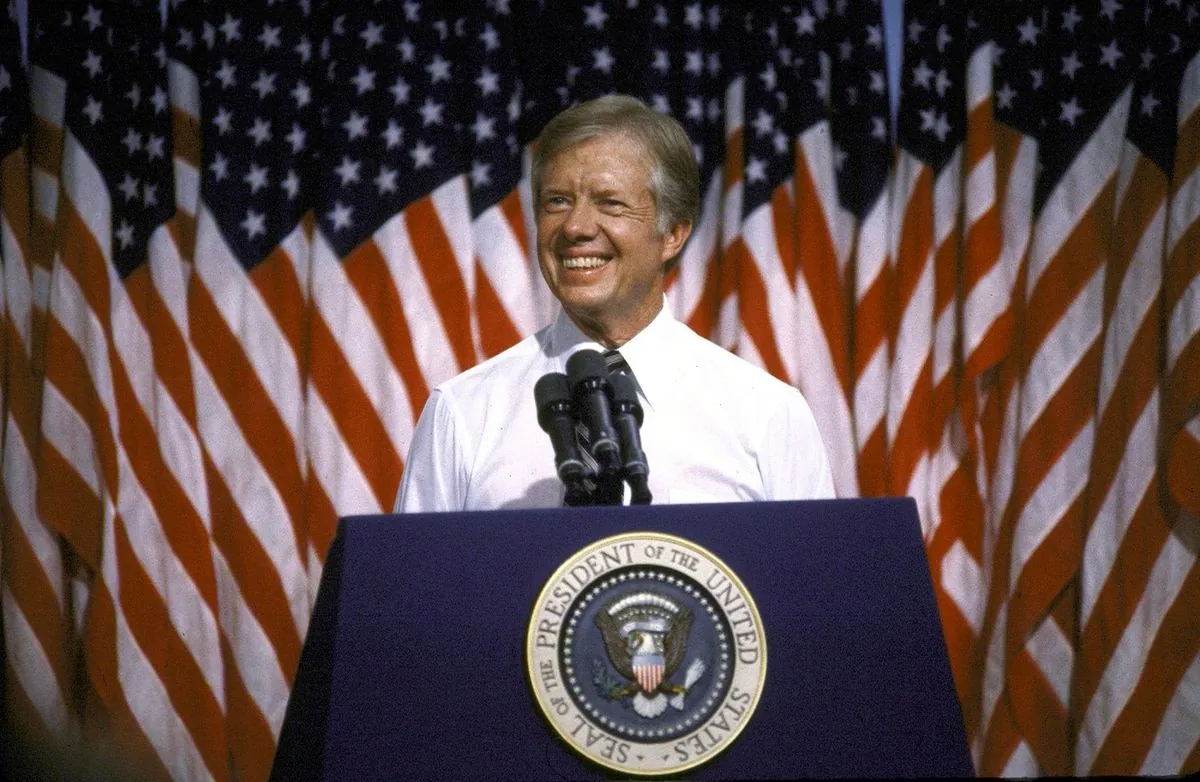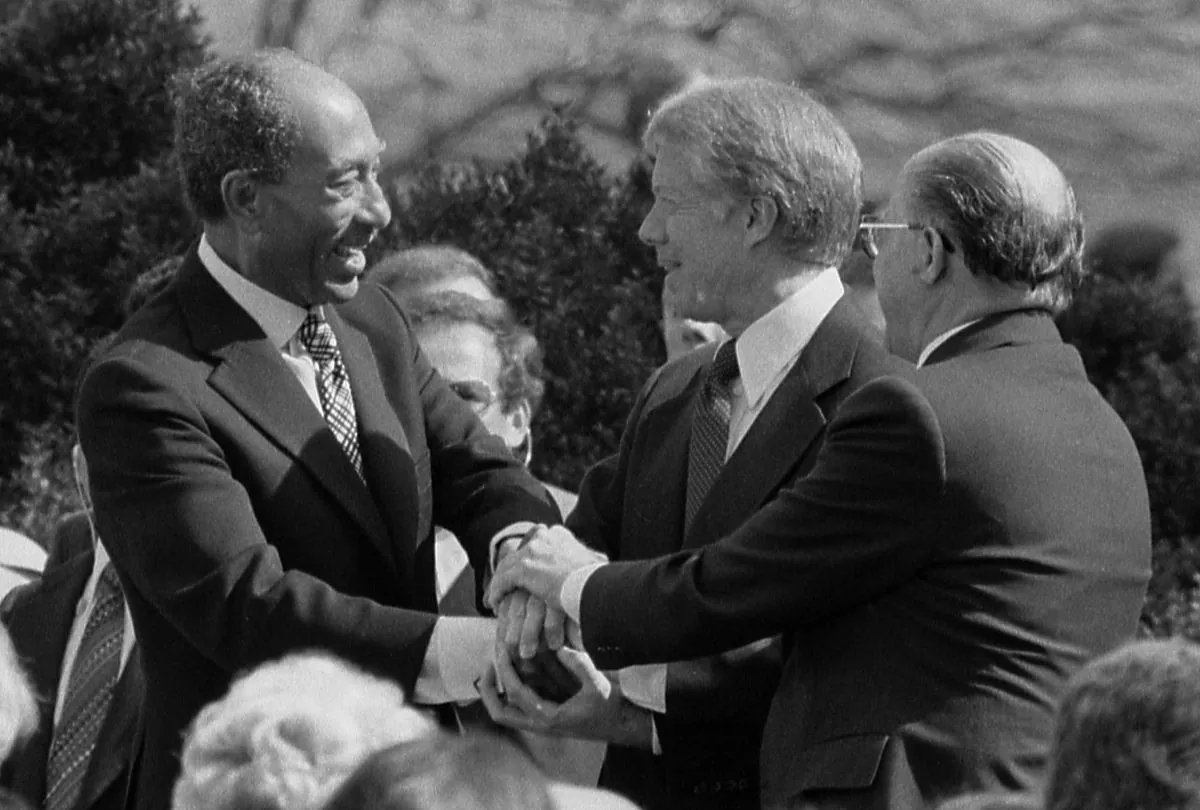Jimmy Carter at 100: Reassessing a Presidency and a Lifetime of Service
As Jimmy Carter turns 100, a reevaluation of his presidency reveals significant foreign policy achievements and a post-presidential legacy of humanitarian work that outshines his successors.

On October 1, 2024, Jimmy Carter, the 39th president of the United States, marks a historic milestone as the first U.S. president to reach his centennial birthday. This occasion prompts a reassessment of his presidency, particularly his foreign policy achievements, which appear increasingly impressive when compared to those of his successors.
Carter's presidency, which ended in 1980, was often criticized for economic challenges and perceived foreign policy weaknesses. However, a closer examination reveals a more nuanced and positive legacy. As a graduate of the U.S. Naval Academy and a former naval officer, Carter understood the importance of a strong defense coupled with principled diplomacy.
Contrary to the perception of being soft on defense, Carter approved several major weapons systems later deployed by the Reagan administration. He also established the Rapid Deployment Force to deter Soviet intervention in the Persian Gulf and authorized covert aid to Afghan and Nicaraguan opposition groups.
Carter's emphasis on human rights, initially criticized as naive, proved to be a significant enhancement of U.S. soft power. His support for dissidents and human rights movements in Eastern Europe contributed to the process of liberalization within the Soviet Union, as acknowledged by former Soviet Ambassador Anatoly Dobrynin.

One of Carter's most notable achievements was his role in the Middle East peace process. His personal involvement led to the 1978 Camp David Accords and the subsequent Egyptian-Israeli peace treaty in 1979. This diplomatic success significantly improved Israeli security by removing Egypt from the anti-Israel camp.
In the realm of nuclear non-proliferation, Carter negotiated the SALT II Treaty and successfully encouraged Brazil and Argentina to abandon their nuclear programs. These efforts strengthened the global non-proliferation regime.
When comparing Carter's foreign policy to his successors, a pattern emerges. While Carter left the Middle East in a better state, many of those who followed him faced challenges or made decisions that exacerbated regional tensions. From the 1982 Israeli invasion of Lebanon during Reagan's tenure to the 2003 Iraq invasion under George W. Bush, and the recent handling of the Israel-Hamas conflict, subsequent administrations have struggled to maintain stability in the region.
"America did not invent human rights. In a very real sense, it is the other way round. Human rights invented America."
Carter's post-presidency activities have further cemented his legacy. Over the past 44 years, he has dedicated himself to public service, including election monitoring, conflict mediation, and disease eradication efforts. His work with The Carter Center has been particularly impactful, leading to his Nobel Peace Prize in 2002.
As we reflect on Jimmy Carter's century of life, it's clear that his commitment to public service, both during and after his presidency, sets a high standard for future leaders. His presidency, once criticized, now stands as a testament to principled leadership and diplomatic achievement.


































